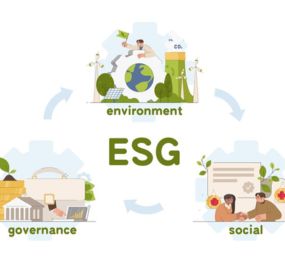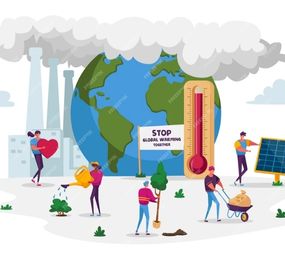Agriculture is a major contributor to climate change, accounting for around 10% of global greenhouse gas emissions. However, sustainable agriculture practices can help to mitigate climate change by reducing emissions and improving soil health.
One of the most effective ways to reduce greenhouse gas emissions from agriculture is to improve soil health. Healthy soils are better able to store carbon, which helps to remove it from the atmosphere. Farmers can improve soil health by using cover crops, reducing tillage, and applying compost.
Cover crops are plants that are grown between rows of crops to protect the soil from erosion and improve its health. They also help to capture carbon from the atmosphere. Reducing tillage helps to preserve soil structure and reduce emissions from the decomposition of organic matter. Compost is a mixture of organic materials that can be added to the soil to improve its fertility and health.
Another way to reduce greenhouse gas emissions from agriculture is to use more efficient irrigation methods. Inefficient irrigation can lead to the evaporation of water, which can release methane, a potent greenhouse gas. Farmers can use more efficient irrigation methods, such as drip irrigation, to reduce water waste and emissions.
Sustainable agriculture practices can also help to improve the resilience of agriculture to climate change. Climate change is expected to lead to more extreme weather events, such as droughts and floods. Sustainable agriculture practices can help farmers to adapt to these changes by improving the resilience of their farms.
Sustainable agriculture is not only good for the environment, but it is also good for farmers. Sustainable agriculture practices can help farmers to reduce their costs and improve their yields. They can also help farmers to create more resilient and sustainable livelihoods.
There are a number of organizations that are working to promote sustainable agriculture practices. These organizations provide farmers with training, resources, and support. By working together, farmers and organizations can help to create a more sustainable and resilient food system.
Conclusion
Sustainable agriculture practices are essential for mitigating climate change. By reducing greenhouse gas emissions and improving soil health, sustainable agriculture can help to create a more sustainable and resilient future for both people and the planet.
For more information and registration details, visit the official website: https://www.leadventgrp.com/events/2nd-annual-world-esg-and-climate-summit/details
For more information and group participation, contact us: [email protected]
















